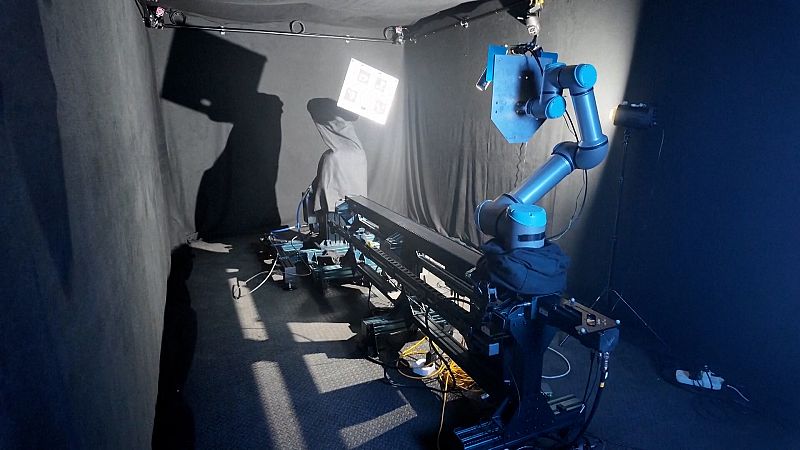Inside the London lab simulating AI-controlled satellites

As more satellites are sent into orbit, engineers are exploring ways to make them autonomous using artificial intelligence (AI).
The space industry is expanding rapidly, with a record high of around 2,800 satellites launched in 2023, according to the Space Foundation, a US-based nonprofit.
Satellites play a role in our daily lives, affecting things as small as smartphone GPS as well as weather forecasting and financial systems.
At a startup in a London-based laboratory, engineers are testing algorithms and robotic satellites to help satellites in space dock, refuel, and repair each other without human control.
"We use AI for visual-based navigation,” said Haaris Khan, an engineer at the startup Lunasa.
“This is kind of like a self-driving car. Whereas a self-driving car would drive itself on the road using AI, we use the same kind of AI in order to pilot satellites in an autonomous way,” Khan added.
How does it work?
The company says technology like this could shape the future of the space industry by reducing the need for manual operations.
The system works by teaching machines to interpret images and make decisions. Using cameras and sensors, a satellite estimates the distance and angle of its target, for example another spacecraft.
AI then processes that information and generates instructions on how a satellite can move safely towards it.
Before any testing with robotic satellites, Lunasa tests every manoeuvre in a “digital twin,” a detailed computer simulation of a satellite and its environment in space.
"In order to ensure safety and rapid development, we do everything in a digital twin simulator first. This will allow us to see what things will be really like in low Earth orbit and in order [to] replicate the scenario in the robotic room," said Khan.
Lunasa’s technology is part of a recently announced cohort of 23 new international collaborations under the United Kingdom Space Agency’s International Bilateral Fund.
No satellites using Lunasa’s system have been launched into space yet, but plans are underway for its autonomous navigation kit to fly aboard an Australian inspection satellite in 2026, according to the company.
For more on this story, watch the video in the media player above.
Today

